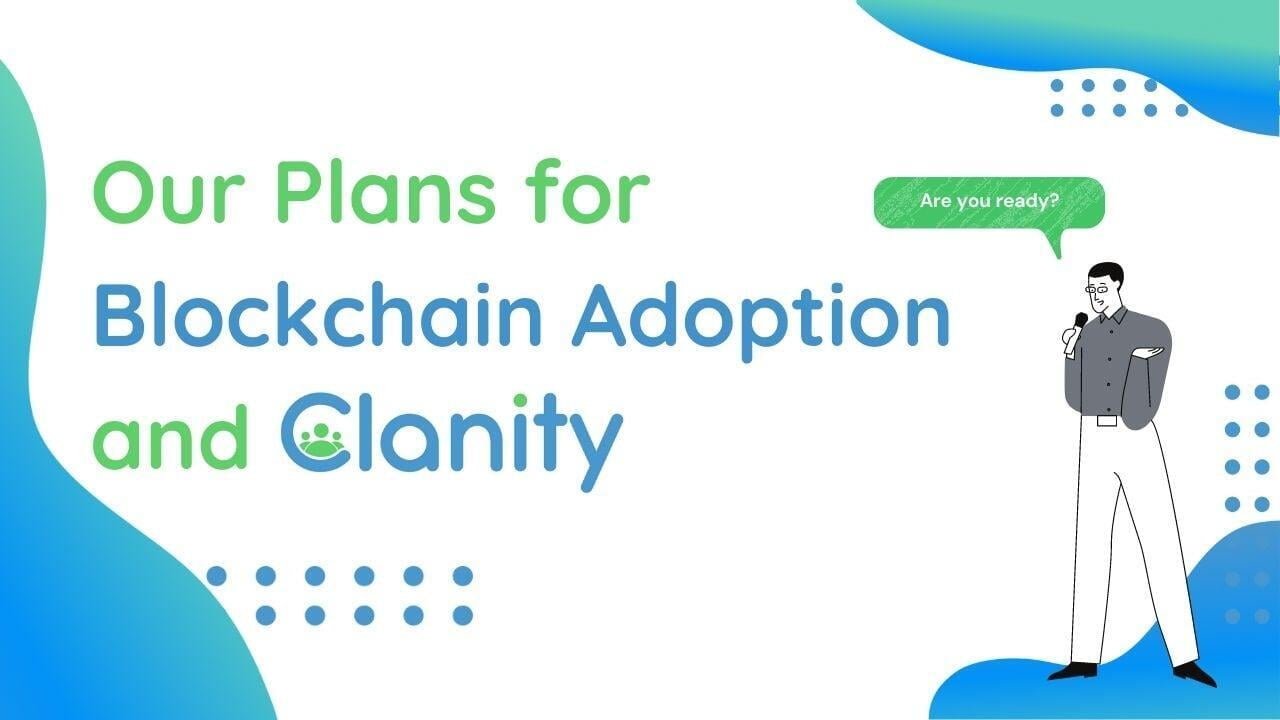
4 challenges with blockchain adoption and how to avoid them:
When it comes to implementing blockchain, most businesses encounter the same challenges. Knowing what they are could be the first step toward conquering them and moving forward on the path to success.
1. Lack of adoption
Blockchains are ecosystems that rely on widespread adoption to function properly. For example, track-and-trace capabilities in supply chains would necessitate not only an organization's adoption of a blockchain network, but also those of its suppliers. Despite this, according to Clanity, only 29% of firms are experimenting with blockchain or have fully implemented it. The effectiveness and scalability of blockchains will be restricted until they are widely adopted.
However, there are reasons to be positive about blockchain adoption. Organizations are increasingly organizing collaborative blockchain working groups to address common pain points and build solutions that benefit everyone without revealing private data.
2. Trust among users
The second main barrier to widespread adoption is a lack of trust among blockchain users. This problem has two sides: organizations may not trust the technology's security, and they may not trust other participants in a blockchain network.
The blockchain considers every transaction to be secure, private, and verified. This is true even though, because the network is decentralized, there is no central authority to confirm and verify the transactions. The consensus algorithms that drive universal agreement about the current state of the distributed ledger for the whole network are a critical component of any blockchain network. It assures that each new block contributed is the only version of the truth that all nodes in the blockchain agree on. Business executives have found that private blockchains, which have no known users, have a higher level of confidence.
3. Financial resources
According to studies, the third hurdle to widespread blockchain implementation is a lack of financial resources. Blockchain implementation is not cheap, and many businesses' resources are already stretched due to the epidemic and disruption of 2020. Another takeaway from the pandemic is that firms, particularly IT departments, may shift far more quickly than previously imagined.
A closer look at this roadblock reveals that it stems from a lack of organizational knowledge and comprehension of blockchain. We've seen that as public awareness of new technologies grows, so does the ability to effectively make a business case for their adoption. This will be true of blockchain as well, assuming that proponents focus on developing a business case that shows how the technology's benefits will outweigh the costs of deployment.
4. Blockchain interoperability
As more businesses use blockchain, many of them will design their own systems, each with its own set of features (governance rules, blockchain technology versions, consensus models, etc.). These disparate blockchains do not communicate with one another, and there is currently no global standard that allows them to do so.
The capacity to share, see, and access information across different blockchain networks without the use of a middleman or central authority is referred to as blockchain interoperability. Because of the absence of interoperability, mass adoption may be nearly impossible.
Interoperability for blockchain will be vital in a post-pandemic business world where collaboration across functions, with suppliers, and with customers is essential. It's the only way to ensure that businesses get the most out of their blockchain investments.
The good news is that we've seen an increase in the number of interoperability projects aimed at bridging the gap between different blockchains over the past year. Many of them are aimed at bridging the gap between private networks and public blockchains. Prior approaches that concentrated on public blockchains and cryptocurrency-related tools were less valuable to corporate leaders in the end.
Clanity Plans for Blockchain Adoption
Clanity will feature a native Cardano utility token with a global use case and a high chance of global adoption. Customers will be rewarded with this token if they complete transactions with our business partners. Additionally, corporate partners will use this token to provide community interaction opportunities for the general public and to reward them for engaging with the brand.
Clanity will use the latest breakthroughs in encryption and distributed ledger technology to support local companies and low-funded schools by developing rewarding and attractive loyalty/reward programs as well as chances for community-business involvement.
Let's start this revolution - visit www.clanity.com today!
-----------------------------------
Let's start this revolution - visit www.clanity.com today!
-----------------------------------
OUR OFFICIAL CHANNELS
----------------------------------------
----------------------------------------
Website - https://www.clanity.com/
Telegram - https://t.me/clanity
Twitter - https://twitter.com/clanityofficial
Facebook - https://www.facebook.com/clanityofficial
Medium - https://medium.com/@clanity
Reddit - https://www.reddit.com/r/Clanity/
Instagram - https://www.instagram.com/clanityofficial/

